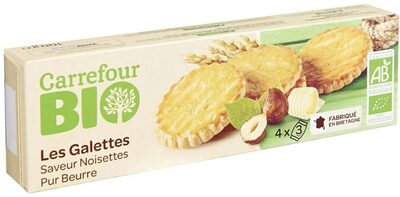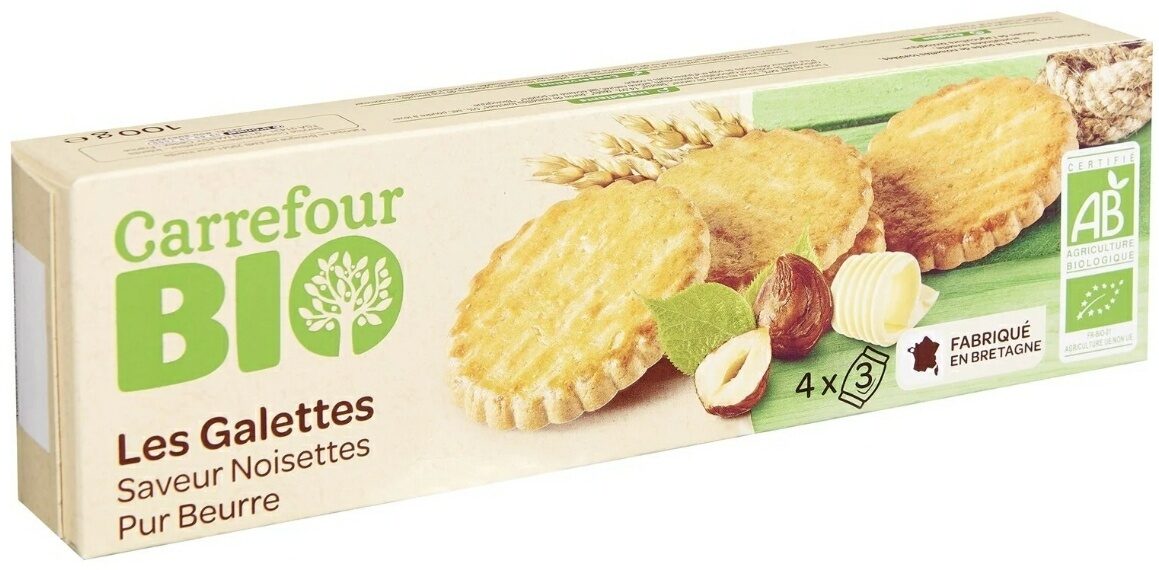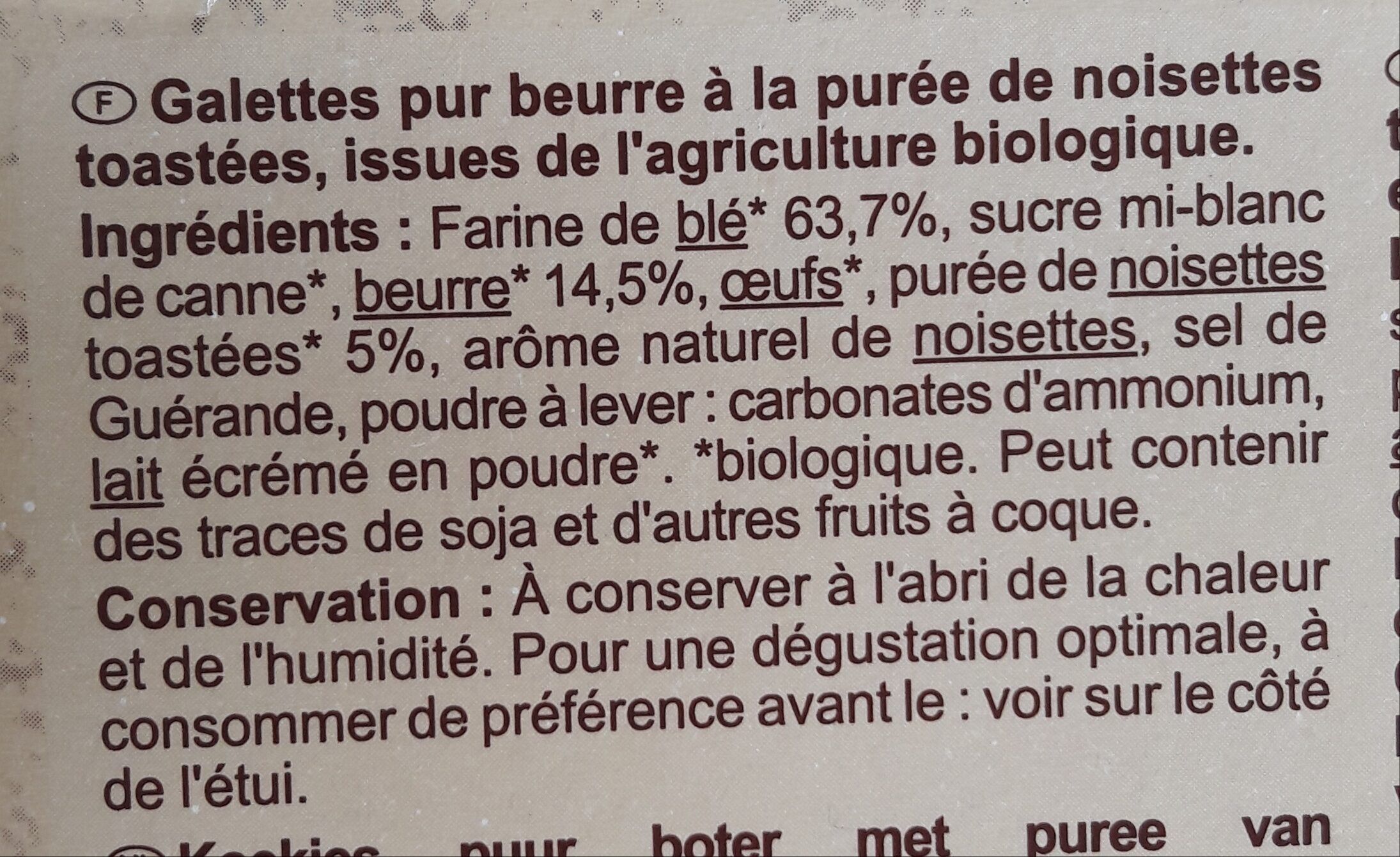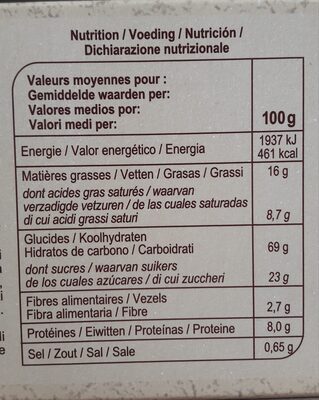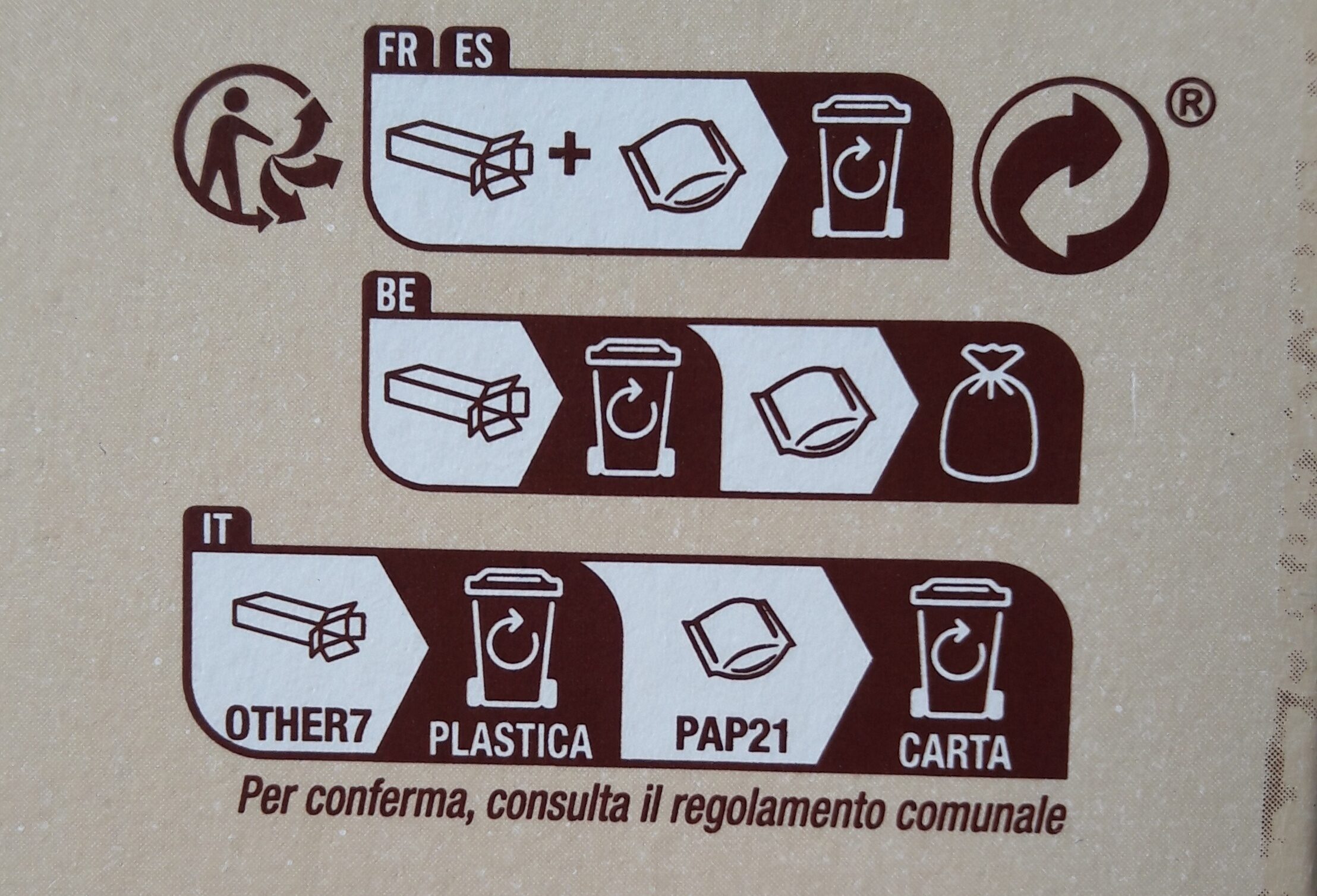Galettes à la noisette Bio - Carrefour - 100 g
This product page is not complete. You can help to complete it by editing it and adding more data from the photos we have, or by taking more photos using the app for Android or iPhone/iPad. Thank you!
×
Some of the data for this product has been provided directly by the manufacturer Carrefour.
Barcode: 3560071179359 (EAN / EAN-13)
Common name: Galettes pur beurre à la purée de noisettes toastées, issues de l'agriculture biologique.
Quantity: 100 g
Packaging: fr:Emballage carton, fr:Sachets plastique
Brands: Carrefour
Categories: Snacks, Sweet snacks, Biscuits and cakes, Biscuits, Dry biscuits
Labels, certifications, awards:
Organic, EU Organic, Non-EU Agriculture, EU Agriculture, EU/non-EU Agriculture, FR-BIO-01, Green Dot, Nutriscore, Pure butter, AB Agriculture Biologique, Triman



Manufacturing or processing places: Bretagne
Traceability code: EMB 29041 - Coray (Finistère, France)
Stores: Carrefour, Carrefour Market, carrefour.fr
Matching with your preferences
Other information
Conservation conditions: À conserver à l'abri de la chaleur et de l'humidité. Pour une dégustation optimale, à consommer de préférence avant le : voir sur le côté de l'étui.
Customer service: Interdis - TSA 91431 - 91343 MASSY Cedex - France
Report a problem
Data sources
Product added on by kiliweb
Last edit of product page on by aleene.
Product page also edited by driveoff, fix-salt-bot, moon-rabbit, nutrinet-sante, openfoodfacts-contributors, org-carrefour, packbot, pommeorange147, quechoisir, roboto-app, spotter, teolemon, veterini, yuka.Vko4dUNxNEtvOWNPbHNBdzlBL0hwZmh0eTZHSlhVam9Cck1YSVE9PQ, yuka.ZkljUlFMOCtxUEFRby9ZUitndjAydjFXNjgrU1gxSHRHZElKSWc9PQ, yuka.sY2b0xO6T85zoF3NwEKvlhFZVYOFoDXjOTnttWyo6vayc8bPQch_vZjLGao.
